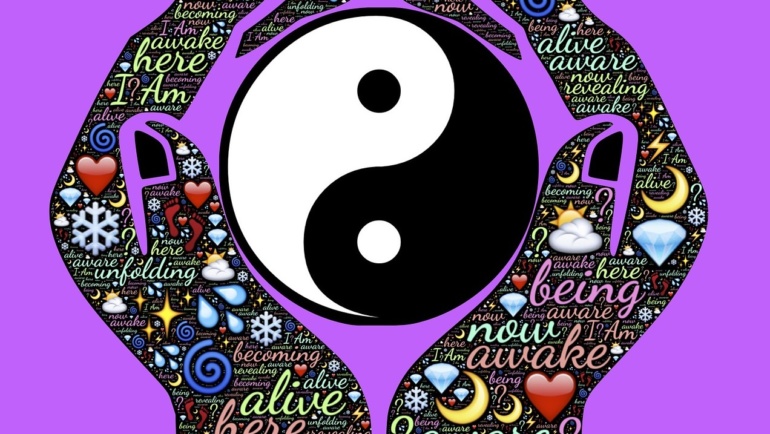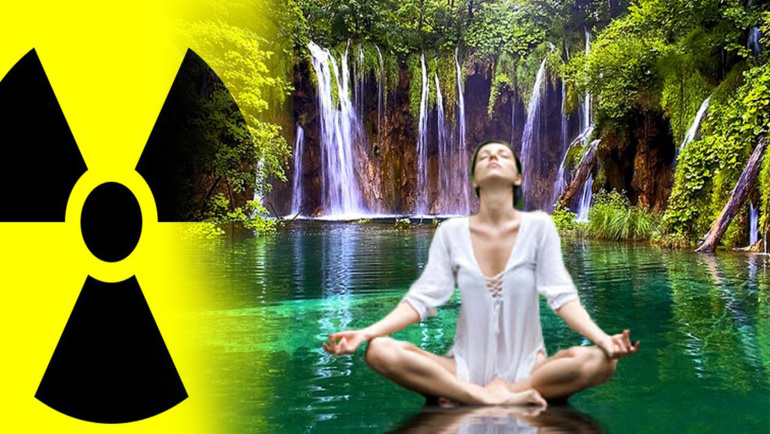
What exactly is nature? This is a question without a clear or simple answer. There are many theories that have tried to answer this elusive query. There is one idea about nature that is fairly obvious in the modern world: humanity has had a great impact on the natural world as we now know it. Many would agree that humans are, out of ignorance or lack of concern, destroying the natural world. This is a topic that is still widely debated, but the consensus among many scientists is that our modern lifestyle is drawing humanity close to peril. Why would this be the case? Why would an animal destroy its own home? It seems that, at least part of the answer may be found in our philosophy of nature. What we perceive nature to be directly affects how we interact with it.
In Western society, humans have removed themselves from the natural world to a great degree. What exactly is “the natural world”? It seems that the natural world is that aspect of the earth that remains unadulterated by humans. Aristotle would argue this definition. In his work, Politics, he expresses, “the city exists by nature and that a human being is by nature a political animal. Anyone without a city because of his nature rather that his fortune is either worthless or superior to a human being” (Aristotle 1253a. pg. 340); so it seems to Aristotle that to be without a city is to be very unnatural and not human. Some may argue that development of a city is a natural process in the evolution of humans and, therefore, an aspect of nature; however, it seems that, even if this were the case, it is not for the greatest good, as a modern city greatly exploits and exhausts natural resources. To Aristotle, nature is a character something reveals when its coming to be is complete.
In actuality, nothing is really ever complete. Time changes and shifts all things, so existence appears to be in constant flux. According to Heraclitus, “The cosmos, the same for all, none of the gods nor of humans had made, but it was always and is and shall be: an everlasting fire being kindled in measures” (Heraclitus 27, pg.11). It seems that in pre-Socratic thought, there was an understanding of the movement of nature and the energetic principles which constantly create and destroy. Nothing is permanent. This is a common idea seen in many philosophies, and a deeper understanding of this concept can bring a more complete understanding of reality.
So, how exactly did the Western world remove itself so completely from nature? Prior to advanced Greek Civilization and, throughout the ancient world, pantheistic animism was a widely held view. It was a common belief system among people hunting and gathering for sustenance as well as many agrarian cultures. The concept of pantheistic animism is one that holds the belief that everything is interconnected through spirit and all is interdependent and divine in nature. This understanding of the natural world promotes a harmonious co-habitation with the natural world as opposed to an overpowering and dominance. When a culture lives close to nature, a deep understanding of its delicate balance is easily observed and laws, such as the Hawaiian system of Kapu or Native American gathering practices, are enforced to help ensure a sustainable approach to collecting resources. This was probably discovered through experience, as a lack of resources, due to over harvesting, would have most certainly created famine situations in small clan or tribal cultures. There are natural laws that must be followed in order for a system to stay in balance. Heraclitus makes mention of this when he states, “For all human laws are nourished by one law, the divine law; for it has as much power as it wishes and is sufficient for all and is still leftover”(Heraclitus 14,pg.10). According to some interpretations, divine law is understood as natural law, or the law of cause and effect. Western thought has set man apart from beast and justified domination and power to tame the wild. Man is seen as superior to all else. In Sophocles’, Antigone, the first line of the Second Choral Ode states, “There are many strange and wonderful things, but nothing more strangely wonderful than man”. This separating man from other creatures and nature is the beginning of the loss of the concept of divine law and divine order. Humans are greater than all others and, so it seems, are no longer subject to the laws that govern the lower life forms.
In losing the understanding of the divine aspect of nature, humans began to conquer and attempt to construct nature; however, this is a naive pursuit as nature is wild and unruly and can never truly be directed or rendered helpless. Lucretius writes, “water is by nature soft, but when swollen by a great deluge racing down from high mountains after heavy rains, it rams together debris of forests and whole trees; even sturdy bridges cannot withstand the sudden shock of the advancing flood, so furious is the force with which the river, made to boil by bulk of rain dashes against the piles; with thundering roar it deals destruction, rolling big boulders beneath its waves and sweeping away all that obstructs its course”(Lucretius 280,pg.391). Mother Nature laughs heartily at the silly attempts humanity makes to subdue her wrath. This power was never underestimated by ancient nomadic and agrarian cultures, or most ancient peoples, and the elements were feared and worshipped as gods and goddess, and libations and sacrifices were offered to please them in the hopes of calming and soothing their volatility.
Nature has a softer side as well, and when all is well and nature is calm, it can offer great solace and peace. When humans are in balance and nature is in balance, a harmonious life is possible. This idea of balance is a main theme in the Taoist concept of reality. Lucretius, the ancient Roman philosopher, echoes a bit of Taoist thought when he writes: “those who follow their true nature never feel cheated of enjoyment when they lie in friendly company on velvety turf near a running brook beneath the branches of a tall tree and provide their bodies with simple but agreeable refreshment, especially when the weather smiles and the season of the year spangles the green grass with flowers”(Lucretius 30, pg.394). Lao Tzu, in his idea of Taoism, recommends that in order to have a balanced life one must “follow nature”. Taoist philosophy is somewhat similar to pantheistic animism in that it has the concept of “chi” which is the energetic principle that permeates all things. This can be compared in some ways to the spirit of nature that is respected and worshipped by those who hold a belief in pantheistic animism. Everything is connected through this energy. Lucretius had an understanding of this energetic principle and explains in great detail his thoughts on its nature. This energy is made up of invisible particles. He writes of the unseen and the void. He writes on matter and the void. This is also similar to the Taoist concept of duality and the Taoist idea of the interplay between being and non-being. In order for being to exist, there must be non-being. Lucretius writes of the importance of empty space, the non-being, for phenomena such as movement: “but you could not possibly perceive these things happening if there were no empty spaces that the various particles could use as passages” (Lucretius, pg.393). It is empty space, the void that makes room for matter. In the Tao, this void or darkness is the yin or feminine aspect of creation. It is from this void that all is born. The void and matter are interdependent and this is the dual nature of reality on the earth plane.
Lucretius did not speak of an afterlife and recognized the body and spirit as one. They were seen as being interdependent and mortal. At the time of one’s death, the energetic principle, elements or atoms, were transformed into another aspect of nature. The world around us is all that exists according to Lucretius. There is no intelligent design and no after-life.
Although Platonic thought preceded Lucretius, Plato’s ideas have dominated the Western world for much of history; first, through his influence on the development of Western philosophy in ancient Greece, and later through his influence on the Christian church. The Christian church has had tremendous influence on Western thought and Plato’s ideas are an integral part of Christian ideology. Plato did not see this world as being the real reality, and the real reality was, to him, the true nature of existence. The soul and the body are seen as being separate in Platonic thought, and the world in which we dwell is the world of illusion. With the idea that the natural world is illusion and we are something separate from it, it shifts one’s perspective and nature becomes something other than us. Nature is now no longer related to us, but something that we can manipulate and exploit. In Plato’s, Republic, he tells the story of the Allegory in the Cave in which he describes the reality that we know to be a world of shadows. The real reality lies beyond the cave and the truth is represented by the sun. The sun is a symbol for illumination, so one becomes enlightened when one sees the real reality with one’s own eyes. “Finally, I suppose, he would be able to see the sun- not reflections of it in water or some alien place, but the sun just by itself in its own place- and be able to look at it and see what it is like” (Plato 516b.,pg.202). This idea of a realm beyond this earthly reality allows one to disconnect from our animal nature and imagine ourselves as separate from the rest of the world.
It is interesting to note that the sun is not only a symbol of illumination, but in many ancient cultures, the sun is seen as an aspect of the masculine or a god, such as the god Ahura Mazda in Zoroastrianism. The moon and earth were understood as being an aspect of the feminine, such as in the moon goddess Hina in Hawaiian culture, or the earth mother Bumi in Hinduism. It is common to refer to the earth or nature as mother, and in ancient Greece, this mother goddess was Gaia. In ancient Greece and Rome the aspect of the feminine was still maintained as being part of nature, but over time, through Western Christianity, the connection to the earth as mother was lost and the focus became worship of the male god. With this loss of understanding of the female element of nature, destruction, carelessness, and a disregard for our dependence on the earth became more prevalent.
Plato seemed to live a life inspired by his desire to know truth. In his ideology the truth could not be understood through the senses. It was beyond the senses and could only be understood by the soul. The body was merely a shell to house the real self and preparation for a proper death was vital in order to consider one’s self to be a true philosopher. His mind was fixated on things belonging to the soul, or the real reality.
The body is oftentimes associated with the earth. The earth is the feminine. The soul is associated with the cosmos, the heavens, or the male aspect. The sun penetrates the earth and the fertile ground gives birth to new life. The body dies and goes back to the earth. At the time of death, the soul and self goes back to the heavens. This disconnection of the soul from the body disconnects one from the earth. The earth is not the true home of the soul, so it is not as important or vital as an understanding of the realm of souls.
In Plato’s, Phaedo, he describes Socrates’s death. He also better describes Socrates’s belief in the importance of understanding reality through the experience of the soul: “But when the soul investigates by itself it passes into the realm of what is pure, ever existing, immortal, and unchanging, and being akin to this, it always stays with it whenever it is by itself and can do so; it ceases to stray and remains in the same state as it is in touch with things of the same kind, and its experience then is what is called wisdom?”(Phaedo 79d., pg.119). Understanding that a philosopher is a lover of wisdom, and wisdom is associated with the soul, it seems logical that dissociation with the body and earthly matters would allow one to experience wisdom on a deeper level. Socrates states, “We must believe, my friend, that this bodily element is heavy, ponderous, earthy and visible” (Phaedo 81d., pg.120). This statement is in reference to a polluted soul which has spent too much time being associated with the body. The body is bewitching and dim; adjectives also associated with women or the feminine. The bodily element is described as “earthy”. The body is negative and one should feel disdain for things of the earth and concentrate on higher matters; superior thoughts as earthy thoughts are lowly thoughts.
The world beyond this is the world, in Socratic and Platonic thought, is the world we should spend our time preparing for. Earthly matters are distractions from our ultimate destiny, our death and the after-life. “The well- ordered and wise soul follows the guide and is not without familiarity with its surroundings, but the soul that is passionately attached to the body, as I said before hovers around it and the visible world for a long time, struggling and suffering much until it is led away by force and with difficulty by its appointed spirit” (Phaedo 108b., pg.134). Socrates speaks of the true heaven, the true light and the true earth, and describes the earth on which we live as “spoiled and eaten away”. It is only natural to long for the true earth, and as this earth is “spoiled” there is no need to feel connected to it, for we should set our sights on higher things. This mindset leads to irreverence for the earth.
With Platonic thought as the basis for the Western concept of reality and the later use of this ideology in Christianity, the stage was set for the destruction of the planet. Dominance and power struggles have been witnessed in many civilizations, not just in Western civilization; however, the Western disconnection of humans from nature, the dissociation of the soul from the body, and a longing for an after-life has helped create the reality we now see around us. With a loss of the understanding of the divine nature in all things, reverence for the natural world was lost, and Westerners set out to conquer the wild world. The rest of the world has followed their lead in modern times. The way in which we perceive nature guides the way we interact with it. Failure to understand our deep dependence on the earth and its resources has pushed humanity to the brink of destruction. Modern science is rediscovering ancient truths, such as the interconnectedness of all and the importance of balance, and new ideas are being implemented to try and correct our mistakes. As people change their concept and philosophy about nature, the way they behave will change. This change will first begin with new perception. Perhaps it is time to seriously look at the way Western philosophy has shaped the minds of the modern world and reevaluate its viability.
Works Sited
Miller. & Reeve, C.D.C.(2006). Introductory Readings in Ancient and Greek and Roman Philosophy. Indianapolis/Cambridge:Hackett Pub.





